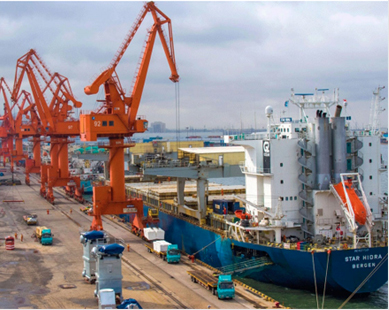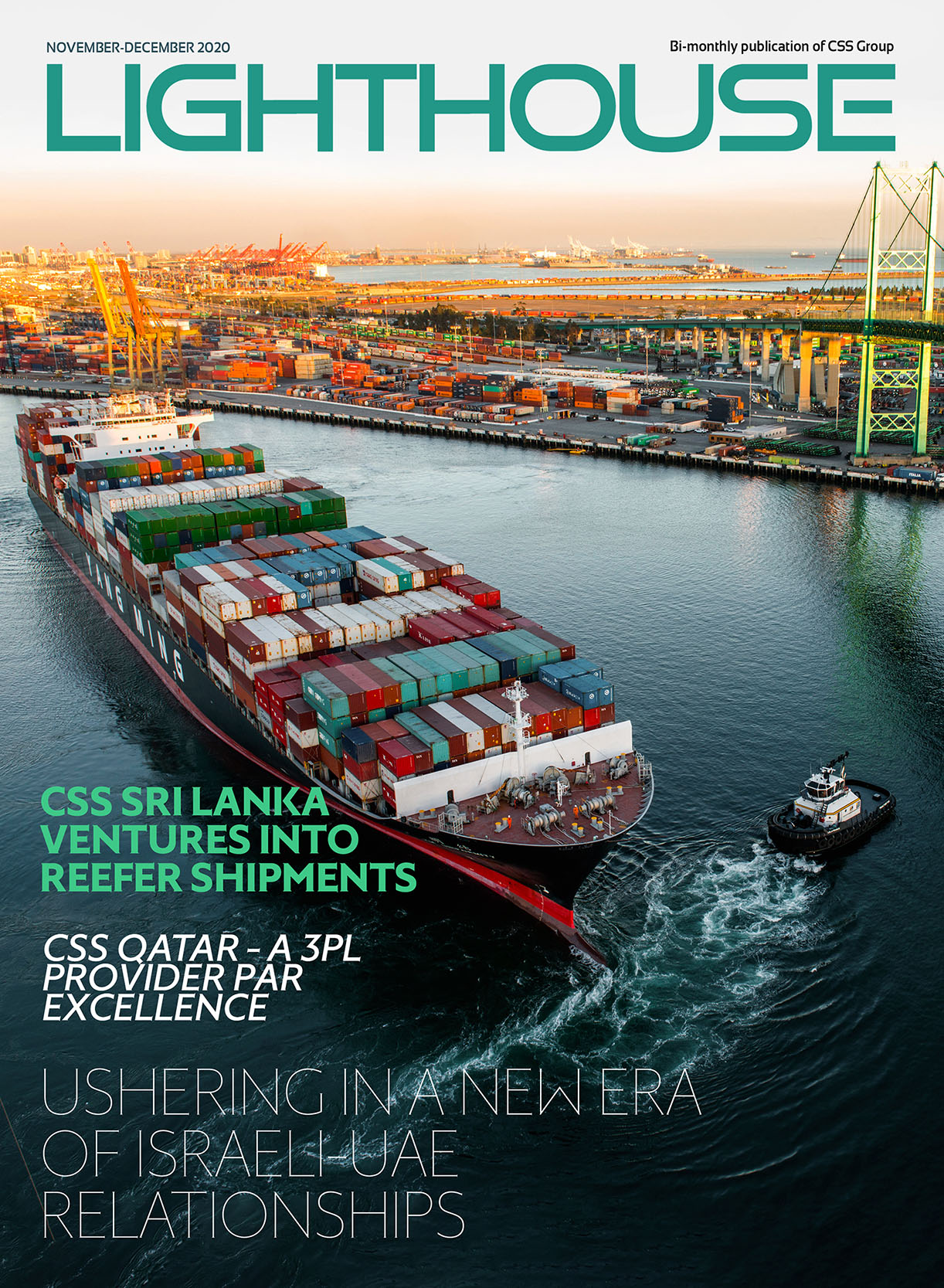
The special division of the High Court; the Admiralty Court, whose jurisdiction includes shipping and maritime disputes; apart from hearing cases relating to vessel collisions, salvage, vessel mortgage-related disputes, and various other marine-related claims/disputes. It also has the power to arrest vessels to stop them from moving and to order their sale, which is broadly referred to as claims in rem, or claims against the vessel itself.
This article focuses on the procedure being applied while deciding on the sale of a Yacht, with an unusual turnaround at the end.
The underlying question was, “Can the English Court stop a judicial sale after judgment and an order for sale of a vessel”? The same was decided on 25th March 2020 by Mr. Justice Teare. In the case of Qatar National Bank QPSC v Owners of the Yacht Force India [2020] EWHC 719, however, with a few comments, warnings, and caveats.
Brief of the case are as follows:-
The claimant bank (QNB) had a mortgage over the motor yacht “Force India.”
The loan had been taken out by a legally unrelated company to finance the purchase of a substantial property in the South of France, which was not at all related to purchase or re-finance the acquisition of the yacht. The yacht owner Force India Ltd. agreed to mortgage its vessel as additional security for the loan because the loan’s property value had dropped, and the bank required additional security.
Due to default in payment, on 29th January 2020, the claimant bank had obtained a judgment against the yacht in respect of sums outstanding under its mortgage (Circa €5million) over the yatch. Accordingly, the Admiralty Marshall was instructed by the Court to sell the yacht, and purchase bids were to be lodged by 10th March 2020.
On 10th March 2020, the successful bidder QNB, and the defendant applied to the Court to set aside the sale order. However, the Court turned down the application, but suspended the sale from conducting a full hearing and making a proper determination in the matter, and sought certain undertakings to protect the Admiralty Marshall’s position, its sale broker, and certain other claimants.
What caused the claimant and the defendant to file an application to set aside the order to sell the vessel?
As per Court’s ruling, around the pertinent time i.e. around the time of the original QNB sale application, and subsequently, a company (can be referred to as buyer) with no links to the owner of “Force India.” They were agreed to purchase the shares in the company which owned the French property, which is at the center of the loan in question. A French court approved a continuation plan for the property holding company (as it had been placed under judicial receivership). In early March 2020, an agreement was reached between QNB and the said buyer, whereby the buyer would pay a certain sum of money to QNB in exchange, amongst other things, for an assignment of the mortgage on the yacht. As part of that agreement, QNB was to apply to the Admiralty Court to have the order of sale revoked by noon on 10th March 2020.
As the buyer had repaid the relevant monies owed to QNB rather than the owner, the Court concluded that “the judicial sale of the vessel is no longer required.” This made it quite unusual as it was the successful claimant who asked for the sale to be revoked.
The matter was fully heard on 25th March 2020, where the order for sale was set aside. The reason for doing so was simple, i.e., in circumstances where a third party had, in effect, paid the sum secured by the mortgage, judicial sale of the vessel was no longer required.
It is indeed surprising to see the official sale procedure halted so far into the process, and so near its conclusion and the concern is shared and duly recorded by Mr. Justice Teare, which can be referred to in paragraphs 10 through 13 of the judgment which is worth a read:
Sales by the Admiralty Marshal of vessels arrested in an Admiralty action in rem are the means by which, failing the provision of alternative security, claims in rem are enforced. The Marshal’s sales are free of pre-existing maritime liens, statutory rights of action in rem, or other encumbrances. To ensure that the market price is achieved, the vessel’s value is appraised before the sale. The Marshal cannot sell for less than the appraised value without the permission of the Court. These features of an Admiralty sale are well known to the market. If it became the practice for orders for sale to be set aside, those willing to incur the time and expense involved in making a bid for a vessel ordered to be sold may feel disinclined to do so. That might lead to vessels being sold for less than their market value and might tarnish the Court’s reputation. In the long term, the Admiralty Court’s service to the maritime community would or might be damaged.
These concerns suggest that the Court should be reluctant to set aside a sale, particularly when the application is made as late as the application in this case was made. In his witness statement the Marshal has stated that, according to his broker, Paul Wilcox of Kellocks, around 20 potential bidders had carried out inspections and investigations during the sale period. If it became widespread knowledge that parties can stop a sale process, it would make interested parties “more cautious about bidding for vessels being sold through the court’s process.”
The setting aside of sales should certainly not become a practice.
However, there are very few instances of such applications being made. The only reported instance appears to be The Acrux in 1961. That such applications are rare is apparent from the witness statement of the Marshal in which he said that he had been informed by his broker, Mr. Paul Wilcox of Kellocks, that in his 40 year association with court sales he had never known such an application being made to halt a sale at such a late stage.”
“I was therefore persuaded that unusual and perhaps exceptional circumstances brought about the need to set aside the order for sale in the present case. So long as the market understands this, there should not be any damage to the reputation of the Court or to its ability in future cases to achieve a vessel’s market value when an order for sale is made.”
As rightly stated by Mr. Justice Teare, this case was unusual and perhaps exceptional because it is quite rare that an independent third party would be prepared, effectively, to “discharge the judgment debt and so render the sale unnecessary”, but that is exactly what happened in the case of “FORCE INDIA”.
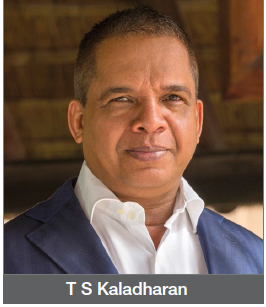
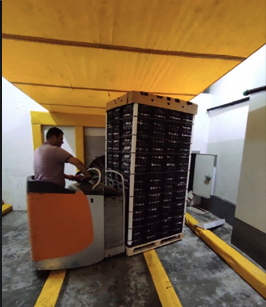
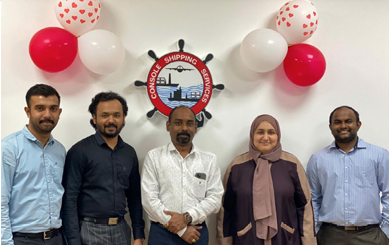
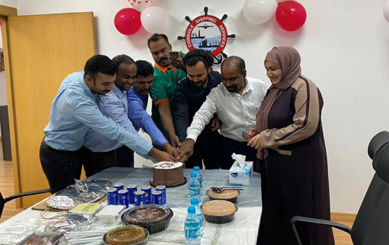 MARCHING FORWARD
MARCHING FORWARD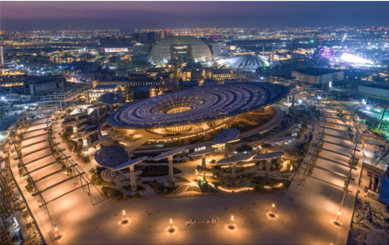 Expo 2020 aims at a global celebration of humanity’s resilience, creativity, culture, and innovation – a tribute to humanity’s resilience in its ability to innovate and achieve the pursuit of optimism in times of adversity. Expo 2020 Dubai is slated to start on October 01, 2021, to build a strong, sustainable future for the global community in a spirit of innovation.
Expo 2020 aims at a global celebration of humanity’s resilience, creativity, culture, and innovation – a tribute to humanity’s resilience in its ability to innovate and achieve the pursuit of optimism in times of adversity. Expo 2020 Dubai is slated to start on October 01, 2021, to build a strong, sustainable future for the global community in a spirit of innovation.